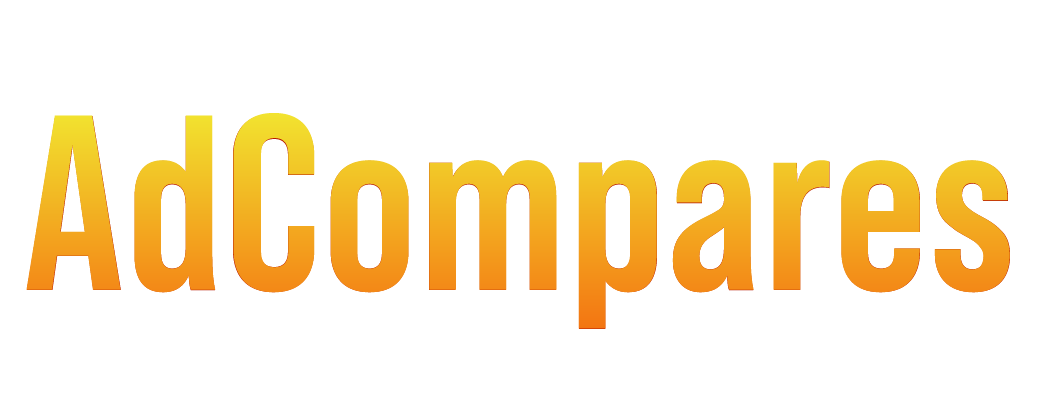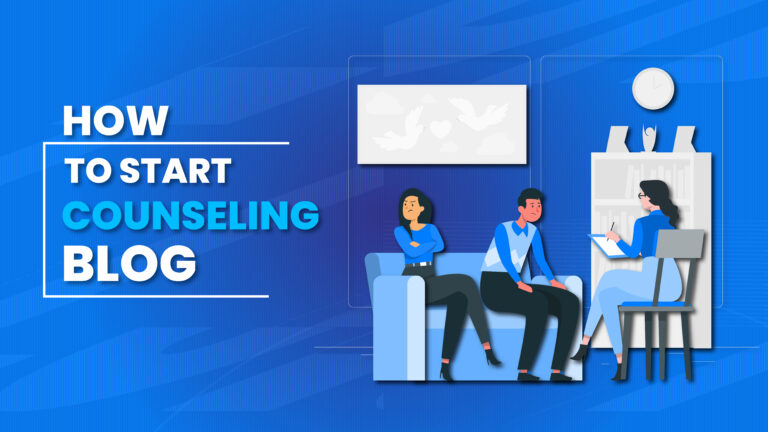In 2026, with an increased focus on mental health awareness, starting a counseling blog allows professionals and enthusiasts alike to share expert knowledge and help others lead healthier lives. This guide will walk you through the steps to start your counseling blog, how to make it stand out, and strategies to improve your readers’ mental health.
Starting a counseling blog in 2026 can be an impactful way to share knowledge, support mental health, and engage with a community seeking guidance. Blogging about mental health, counseling strategies, and self-improvement topics helps provide valuable resources for readers looking to improve their well-being.
What is Counsling Blog?
A counseling blog is an online platform where mental health professionals, life coaches, or wellness advocates share insights, advice, and educational content about emotional well-being and personal growth. These blogs often cover topics such as stress management, anxiety, relationships, self-care, and mental health awareness. The goal of a counseling blog is to provide readers with helpful guidance, professional perspectives, and practical coping strategies to improve their mental health and overall quality of life. Many counseling blogs also serve as a way for therapists or coaches to build credibility, connect with clients, and promote their services online.
Steps to Start Your Counseling Blog
1. Define Your Purpose and Niche
To start a successful counseling blog, it’s essential to have a clear purpose. Decide if your blog will focus on specific counseling types such as cognitive behavioral therapy (CBT), family counseling, or career counseling. Alternatively, you might want to explore broader topics like mental wellness, stress management, or relationship advice.
Having a defined niche helps attract the right audience. In 2026, counseling blogs that cover specialized topics tend to attract more engaged readers. Whether you’re a licensed therapist or an enthusiast, defining your niche ensures your blog offers valuable, targeted content.
How to Define Your Niche
- Identify your area of expertise.
- Consider your target audience and their needs.
- Research popular topics within the mental health space.
2. Choose a Blogging Platform
The next step is choosing a platform to host your blog. Platforms like WordPress, Blogger, and Wix are popular choices due to their ease of use and customization options. Each platform offers different tools and functionalities, so choose the one that fits your technical skills and blog needs.
Key Features to Consider:
- Ease of use: Choose a platform that allows easy customization.
- SEO tools: A platform with SEO plugins helps boost search rankings.
- Monetization options: If you’re looking to monetize your blog, choose a platform that allows affiliate marketing, ads, or product sales.
3. Select a Domain Name
Your domain name should be memorable, relevant, and reflective of your blog’s niche. Ensure it’s easy to spell and represents the nature of your counseling content. Tools like Namecheap and GoDaddy can help you check domain availability.
Tips for Choosing a Domain:
- Include keywords related to counseling.
- Keep it short and simple.
- Ensure it aligns with your brand.
4. Design Your Blog
Design plays a crucial role in attracting readers. A clean, easy-to-navigate layout will keep visitors engaged. Choose a theme that reflects the purpose of your counseling blog. For instance, calm colors like blue, green, and pastels can create a soothing environment for users seeking mental health advice.
Elements to Focus On:
- User-friendly navigation: Make it easy for users to find content.
- Mobile optimization: Ensure the design is responsive on smartphones and tablets.
- Visual appeal: Use calming colors and professional fonts to align with your counseling niche.
5. Create Valuable Content
Once your blog is up and running, the next step is to focus on content creation. The content you produce should be informative, relatable, and well-researched. Your blog posts should address issues like mental health awareness, coping mechanisms, and ways to improve emotional well-being.
Content Ideas for Counseling Blogs:
- How to manage anxiety and stress.
- Tips for overcoming depression.
- Building better relationships through communication.
- Self-care strategies for mental health.
6. Utilize SEO Best Practices
Optimizing your blog for search engines is critical for visibility in 2026. Search engine optimization (SEO) involves using relevant keywords, meta descriptions, and backlinks to increase your blog’s ranking on search engines like Google. Implementing SEO best practices ensures that your blog reaches a larger audience, helping you improve readers’ mental health by expanding your reach.
Key SEO Techniques:
- Research and incorporate mental health-related keywords.
- Write clear meta descriptions for each post.
- Optimize images and multimedia with proper alt tags.
7. Promote Your Counseling Blog
Promotion is key to building your audience. Utilize social media platforms like Instagram, Facebook, Twitter, and LinkedIn to share your posts and connect with a broader audience. You can also consider using email marketing tools like Mailchimp to send newsletters and updates directly to your readers.
Promotion Strategies:
- Share new posts on social media platforms.
- Engage with readers by responding to comments.
- Collaborate with other mental health bloggers.
8. Monetize Your Blog
If you’re looking to monetize your counseling blog, there are various methods to generate income. Affiliate marketing, offering digital products (e-books, courses), or running ads are common options. You can also consider offering paid consultations or services if you are a licensed counselor.
Ways to Monetize:
- Affiliate marketing: Promote relevant mental health products and services.
- Consultations: Offer paid counseling sessions to readers.
- Ads: Use platforms like Google AdSense to display ads on your blog.
Strategies to Improve Readers’ Health Through Your Counseling Blog
Starting a counseling blog gives you the opportunity to influence positive change in your readers’ mental health. By sharing expert advice, personal stories, and therapeutic techniques, you can provide readers with tools to improve their emotional and mental well-being.
1. Educate on Mental Health Topics
One of the main goals of a counseling blog is to educate readers on various mental health topics. Cover areas such as:
- Recognizing early signs of depression.
- Identifying symptoms of anxiety disorders.
- Understanding the importance of seeking therapy.
Providing detailed, factual information can encourage readers to seek professional help and improve their mental health outcomes.
2. Provide Actionable Self-Help Tips
Offering practical, actionable advice is key to helping your readers make real changes in their lives. Posts that outline step-by-step strategies for managing stress, improving communication, or practicing mindfulness are particularly useful.
Examples of Actionable Tips:
- “5 Simple Techniques to Calm Your Anxiety”
- “Daily Mindfulness Practices to Reduce Stress”
- “Effective Communication Strategies for Healthier Relationships”
3. Promote Healthy Coping Mechanisms
In addition to self-help advice, promoting healthy coping mechanisms can significantly improve your readers’ mental health. Articles that explore ways to deal with grief, burnout, or trauma can provide readers with tools to process difficult emotions healthily.
Coping Mechanism Ideas:
- Journaling as a way to release emotions.
- Physical exercise to improve mental clarity.
- Creative outlets like art or music for emotional expression.
4. Share Real-Life Experiences
Readers resonate with real stories. Sharing case studies, personal experiences, or client testimonials (with consent) can help readers feel understood. These stories can inspire hope and show that others have overcome similar challenges.
How Real-Life Stories Help:
- They build trust and credibility.
- Readers can relate to shared struggles.
- They offer encouragement and real-world solutions.
5. Encourage Professional Help
While self-help tips are valuable, it’s important to remind readers that professional help is essential for certain issues. Encourage readers to seek therapy for severe mental health problems and provide resources for finding a licensed counselor.
Why Professional Help Is Important:
- Therapists provide tailored advice.
- Severe mental health issues require professional intervention.
- Therapy is a safe space for emotional expression.
Conclusion
Starting a counseling blog in 2026 offers a unique opportunity to positively impact readers’ mental health. From defining your niche to promoting your blog and providing valuable content, the process requires dedication and strategy.
A well-executed counseling blog can provide education, support, and actionable advice to those seeking to improve their mental and emotional well-being. By focusing on SEO, providing real-life examples, and promoting professional help, your blog can become a trusted source of guidance and inspiration for those navigating their mental health journeys.
Frequently Asked Questions (FAQs)
What are the benefits of starting a counseling blog?
Starting a counseling blog helps raise awareness about mental health, provides readers with valuable information, and allows the blogger to build a supportive community. It also helps professionals establish authority in their field and can be monetized through affiliate marketing, ads, or consultations.
How do I choose a niche for my counseling blog?
To choose a niche, identify your expertise and target audience. Focus on areas such as specific therapy techniques, mental wellness tips, or counseling for particular groups (e.g., teens, couples). A well-defined niche helps attract a more engaged audience.
How can a counseling blog improve readers’ health?
A counseling blog can improve readers’ mental health by providing education, self-help tips, coping mechanisms, and encouraging professional therapy. Well-researched content helps readers understand their mental health and take actionable steps to improve it.
How do I promote my counseling blog?
Promote your counseling blog by sharing posts on social media platforms, engaging with readers, using email marketing, and collaborating with other mental health professionals. Implementing SEO best practices can also help attract organic traffic to your blog.
Can I monetize my counseling blog?
Yes, a counseling blog can be monetized through affiliate marketing, running ads, offering paid counseling sessions, or selling digital products such as e-books or online courses related to mental health and self-improvement.

